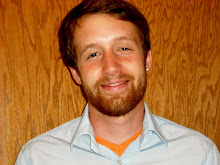And that has led me to think a lot about prayer. Oddly, I am really falling for prayer here. I still struggle with it, but I am starting to see how amazingly revolutionary and subversive it is. When we bow in prayer we are acknowledging that we do not have ultimate ownership and that life is not a commodity or a series of commodities to be gained. Life belongs to no one. It just is. And no person belongs to anyone. No country, party, religion, person or other label can truly hold our humanness. In prayer, we acknowledge this and venture to suggest that we can hand ourselves and things and people who we think we own over to a God who is greater. A God who urges liberation and love. Who hates oppression and loves justice. Who empowers, includes, frees and loves. A God who suggests that there is an alternative to both violence and passivity. That the poor are blessed and the wealthy are in trouble. That empire is evil. That people are worth loving. It is so counter cultural. Also, after realizing our humble state we can still approach God. It is unbelievably empowering. Even though one could argue that God has that ownership that we do not have, God still liberates us to STAND before her. As with the original text of the argument between God and Abraham in the attempt to save the people of Sodom and Gomorra. It is empowering that this God exercises divinity through compassion and ultimately incarnation as expressed in Jesus' full humanity and participation in the human experience which culminated in the ultimate human experience: death. (Even more, death at the hands of an empire. The ultimate expression of the myth that we own anything.) I am reminded here of a quote by Hall: "Divinity is not first of all sovereign omnipotence but astonishing compassion." It is to this God that one can dare to belong.
We are not commodities. We belong to no one. No state. No economy. No person. We may rightfully and justly participate in these but they are not our humanity. The recognition of the image of God that we all are is our humanity.

No comments:
Post a Comment